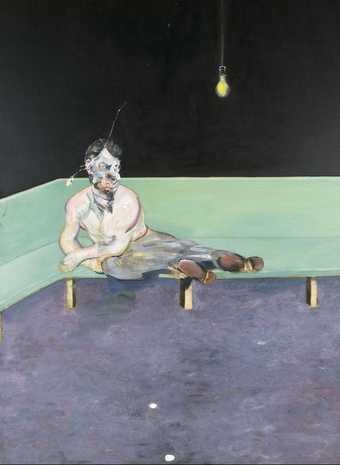In the second of a three-part series, artists, historians and philosophers explore the concept of the body within the visual arts. How is the reality of embodiment conveyed through mediums such as photography or painting? What is the political or social significance of the bodies chosen and of their framing? And to what extent is the artistic process itself an embodied one?
The panel discussion will be chaired by Dr. Dominic Johnson with speakers including artist Michael Armitage, artist Noemi Lakmaier, philosopher Hans Maes and art historian Gregory Salter.
Biographies
Dominic Johnson
Dominic Johnson is a Reader in Performance and Visual Culture at Queen Mary University of London. His most recent authored book is The Art of Living: An Oral History of Performance Art (2015), and his edited books include Pleading in the Blood: The Art and Performances of Ron Athey (2013).
Michael Armitage
Michael Armitage's paintings weave multiple narratives that are drawn from historical and current news media, internet gossip, and his own ongoing recollections of Kenya, his country of birth.
Noemi Lakmaier
Noëmi Lakmaier is a live artist with a particular interest in how we relate to ourselves and others as embodied being-in-the-world. She has performed and exhibited widely both in touch he UK and internationally. Lakmaier is also an existential-phenomenological psychotherapist.
Hans Maes
Hans Maes is Senior Lecturer in History and Philosophy of Art at the University of Kent. He is the author of Conversations on Art and Aesthetics (Oxford University Press, 2017) and editor of the essay collections Art and Pornography (Oxford University Press, 2012) and Pornographic Art and The Aesthetics of Pornography (Palgrave MacMillan, 2013).
Greg Salter
Greg Salter is a lecturer in art history at the University of Birmingham. His book Art And Masculinity In Post-War Britain: Reconstructing Home will be published by Bloomsbury in 2019.
The Body Seminar
Following the panel discussion there will be a seminar from 15.30–17.30 in the Duffield Room.
This two hour seminar explores some of the key philosophical issues raised by embodiment and by its artistic depiction. The first half deals with artistic depictions of sexuality, using All Too Human as the starting point from which to explore the relationship between the artistic nude and the pornographic one. The second half introduces philosophy’s long struggle to understand embodied awareness: we’ll look in detail at Merleau-Ponty’s work on disabled veterans and the lessons for our own self-understanding which he drew from them.
The session will provide a concise introduction to the core theme and its significance for philosophy and the arts. We’ll then break into smaller groups for a guided discussion in which participants can explore the ideas and develop their own take on them in relation to the exhibition and to contemporary events.
The seminar will be led by Dr. Sacha Golob, Dr. Emma Syea and Vanessa Brassey from the King's College London, Centre for Philosophy and the Visual Arts. Participants will have the opportunity to contribute to a research article on the relationship between philosophy and their experience of the All Too Human exhibition.
No prior knowledge of the subject or background in philosophy is required.
This event is part of the three-part series: What Makes Us Human: Conversations on Art and Philosophy.
‘Philosophy in the Gallery’ is a collaboration between The Centre for Philosophy and the Visual Arts at King's College London and Tate, supported by the Cultural Institute at King's.

